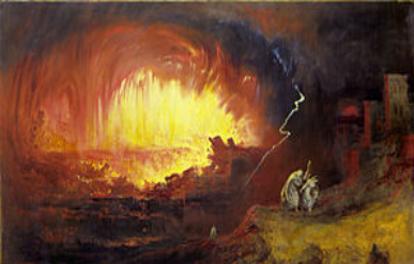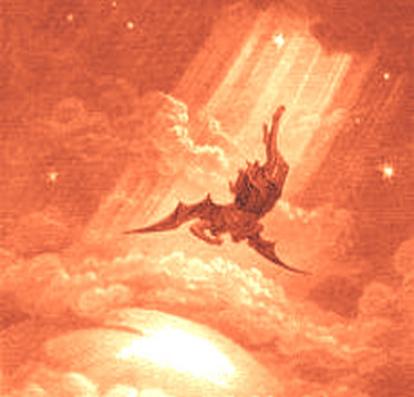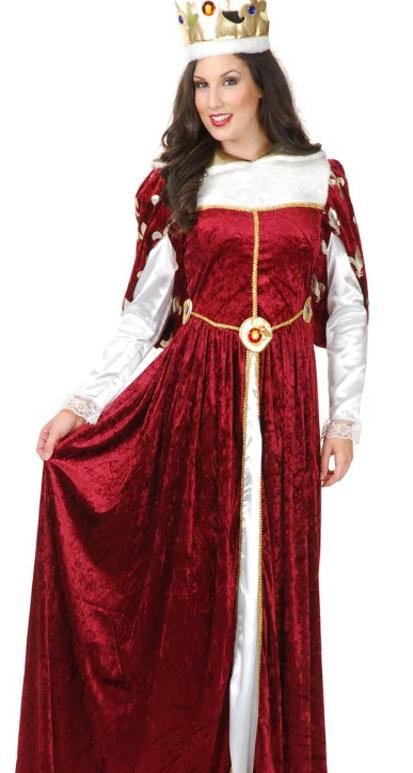Piers Plowman is undeniably a religious work but it is so colourful and personal that the reader never feels 'preached at'. It is a search story and the search object is 'salvation'. Given the times in which Langland lived, such a search was bound to start from the teaching of the Roman Catholic Church. It is the progress of the search that is so fascinating. Langland's first description of "The Field full of Folk" passes adverse comment on some, but is personal, not religious. He reveals his most hated vice, which can be described as pretence: the presentation of oneself as other than one really is in order to deceive and exploit others. Conventional religion comes into it when the lovely lady (Holy Church) comes down from the tower on the toft and explains the vision.
"Most of the men who move in this meadow
Have their worship in this world and wish no better;
No heaven but here holds their fancy."
She tells the dreamer that the tower is the dwelling place of Truth who created all things to worship him and provides for all the needs of men. These needs are clothing and food and drink. She has a caveat about drink and illustrates the evil effects of it from the biblical story of Lot, who, with his two daughters, were the only people to escape the destruction of Sodom. To keep his line alive the girls got their dad drunk on consecutive nights to get pregnant by him.
"By wine and by women there Lot was overcome
And there begot in gluttony graceless brats."
Holy Church has more to say about hell than heaven, telling how Lucifer came to be the the ruler there. Lucifer started out as a high-ranking angel, but got too big for his boots and began to consider himself equal to God. So he was flung out.
"More fell with him than man can number
They leapt forth with Lucifer in loathsome bodies,
For they believed in his lies...."
The dreamer can't take in all that Holy Church has told him, and asks for clarification, particularly about Truth. He gets a brusque reply.
"You are a blunt blockhead and a blind pupil,
You learnt too little Latin, lad, in your schooldays."
The rebuke is followed by a long passage dealing with the virtue of love as commended by Christ. He asserts (repeatedly in VPP) that love has no reality unless manifest in loving actions. He says also that an outward pretence of righteousness can be used to to conceal the absence of love. In such a case, he says;
"You gain no more merit from the Mass or from Matins
Than Malkin from her maidenhood that men don't
desire"
One of the attractive things about VPP is that virtuous characters don't use preachers language. All their good advice is presented in Langland-speak, as above. The dreamer asks Holy Church;
"Show me some skill to perceive falsehood."
He is told to look to his left, and standing there is Lady Mede. This is a critical point, for the dreamer wants to increase his skill in determining right from wrong and Lady Mede shows how hard it can be. For she symbolises the concept of 'reward'. She has an inexhaustible supply of money and rewards in kind which she can hand out as fair wages or as payment for evil deeds or as bribes. Langland spends more time criticising evil-doing than praising good behaviour, so the story of Lady Mede (quite lengthy) makes her seem to deserve condemnation, which she does indeed get at the king's court. The fact that she has an honest side must be deduced from her defence when accused by Conscience. Statements like this are clearly true.
"Emperors and Earls and all kind of lords
With gifts get young men to gallop on their errands."
The passages about the bad things done by Lady Mede and her associates are vastly amusing and a must-read. Perhaps the best of all is the suggestion by a priest who hears her confession.
"Then he absolved her swiftly and said thereafter
'We are working on a window which will cost us a lot.
If you glaze that gable and engrave your name there
Your soul should be certain to have Heaven.'"
So the story of Lady Mede is an appropriate beginning to a search that is going to be long and hard and turn over a lot of stones.


